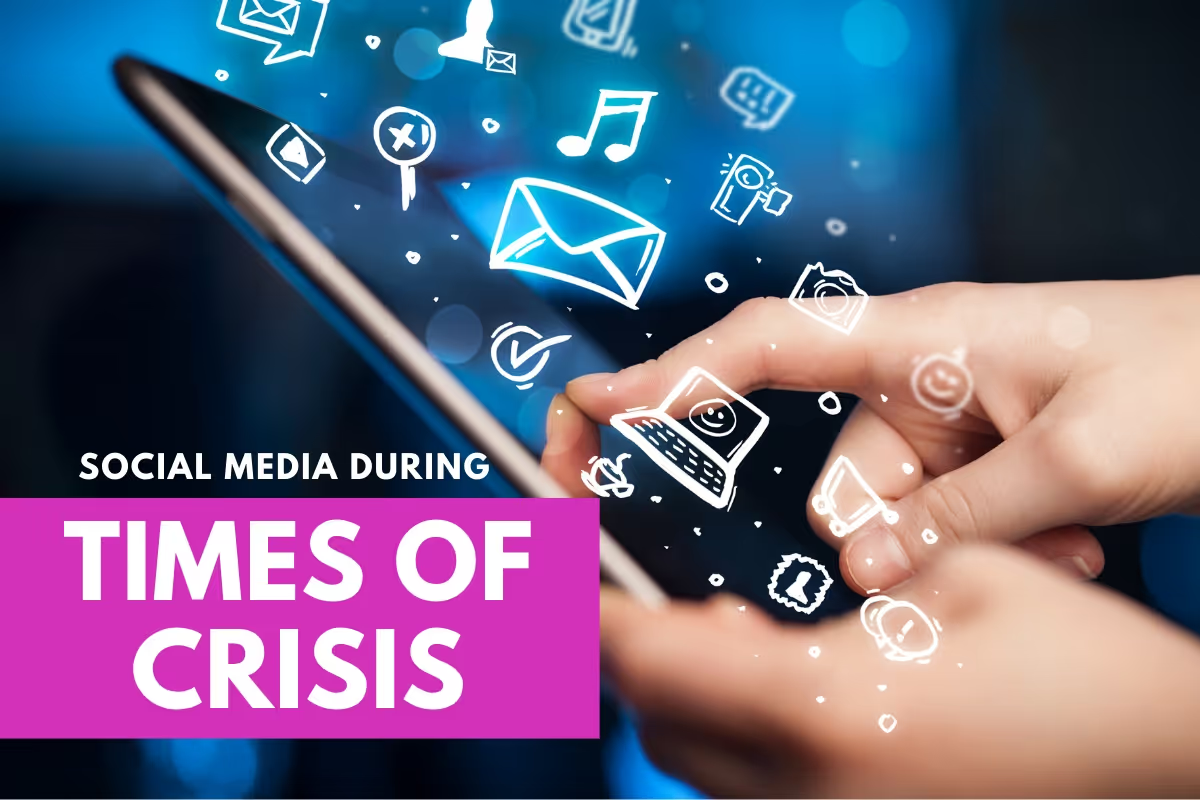

Can you name one thing all businesses have in common? The answer is they will eventually face some type of crisis. Though we might not like to think about, the truth of the matter is if your business stands the test of time, it will inevitably have to hold up against a crisis. The question is, are you prepared? There are 2 types of crises a business can expect - ones that affect your particular business and ones that affect all businesses.

An example of a crisis that affects a single business is one that is often referred to as a “PR nightmare”. They can be caused internally by an employee of the company, or an external individual might bring to light something like poor treatment during a customer service interaction. Remember when the founder of LifeLock had his identity stolen? The company boasted that their product was superior when it comes to protecting your identity from being stolen. To prove their point the founder, Todd Davis, gave out his social security number. Unfortunately, this backfired and he ended up having his identity stolen a whopping 13 times. Did this build trust in the product? Definitely not. If this situation happened today, with social media in full swing, they may have had to deal with tons of backlash.
Examples of crises that affected numerous businesses in modern times include a natural disaster, economic crisis, or a pandemic. These include Hurricane Katrina, the great recession, and the COVID-19 pandemic. Hurricane Katrina affected the South, particularly the state of Louisiana. The great recession affected businesses in America, while COVID-19 was a worldwide pandemic that affected every country in the world.

No business is untouchable, especially if you are a small business. Even if your business is thriving today, an unexpected crisis can easily uproot your world and put your business in a state of frenzy. Instead of going into panic mode, developing communication strategies that include a social media crisis plan beforehand will help to ease tension.
It’s not easy for businesses to stay quiet in today’s technologically advanced world. This is in great part due to the rise of social media. Businesses are expected to communicate with their customers, provide social customer service, and be in tune with what’s going on around them.
Need more of a reason? Today, more than 3.8 billion people in the world use social media. To narrow it down, Around seven-in-ten U.S. adults (69%) use Facebook. More importantly, social media is beginning to replace time that used to be spent with traditional forms of media. Social media is a fast and efficient way to get your message out to your customers during times of crisis.
Developing a social media plan for times of crisis is an action any business can take today. Here are some tips to succeed during uncertain times:

Navigating your business during a crisis won’t be easy. There are many aspects to consider, and brainstorming about them ahead of time can help you tackle the situation a little more smoothly. During a crisis, make sure you’re prepared with a social media strategy and don’t forget to communicate any pertinent information for your customers and clients and your custom small business website.
Social media offers real-time reach to customers, lets you correct misinformation quickly, and shows transparency. With billions online, it is the fastest, cheapest channel to reassure stakeholders and keep them updated during uncertainty.
Choose the platforms where your audience already engages with your brand. For most firms that means staying on existing channels like Facebook, Twitter, LinkedIn, or Instagram. Avoid jumping onto trendy networks you rarely use; consistency and familiarity boost credibility during tense moments.
Draft the statement, then have multiple staff members review it, looking for tone, clarity, and possible misinterpretations. Ask someone to play devil's advocate. Keep language simple, empathetic, and fact-based. When in doubt, shorten, soften, and support claims with verifiable information.
No. Prioritize comments that significantly influence perception, contain misinformation, or request help. You can acknowledge broader feedback with pinned posts or FAQs. Respond calmly, correct facts, and avoid public arguments with trolls. Silence on trivial attacks saves resources and keeps focus on urgent issues.
Share reliable resources, amplify community initiatives, or offer services you can spare, such as discounts, space, or expertise. Highlight local relief efforts, donate products, or partner with nonprofits. Authentic assistance, communicated clearly online, strengthens trust and shows your brand lives its stated values.